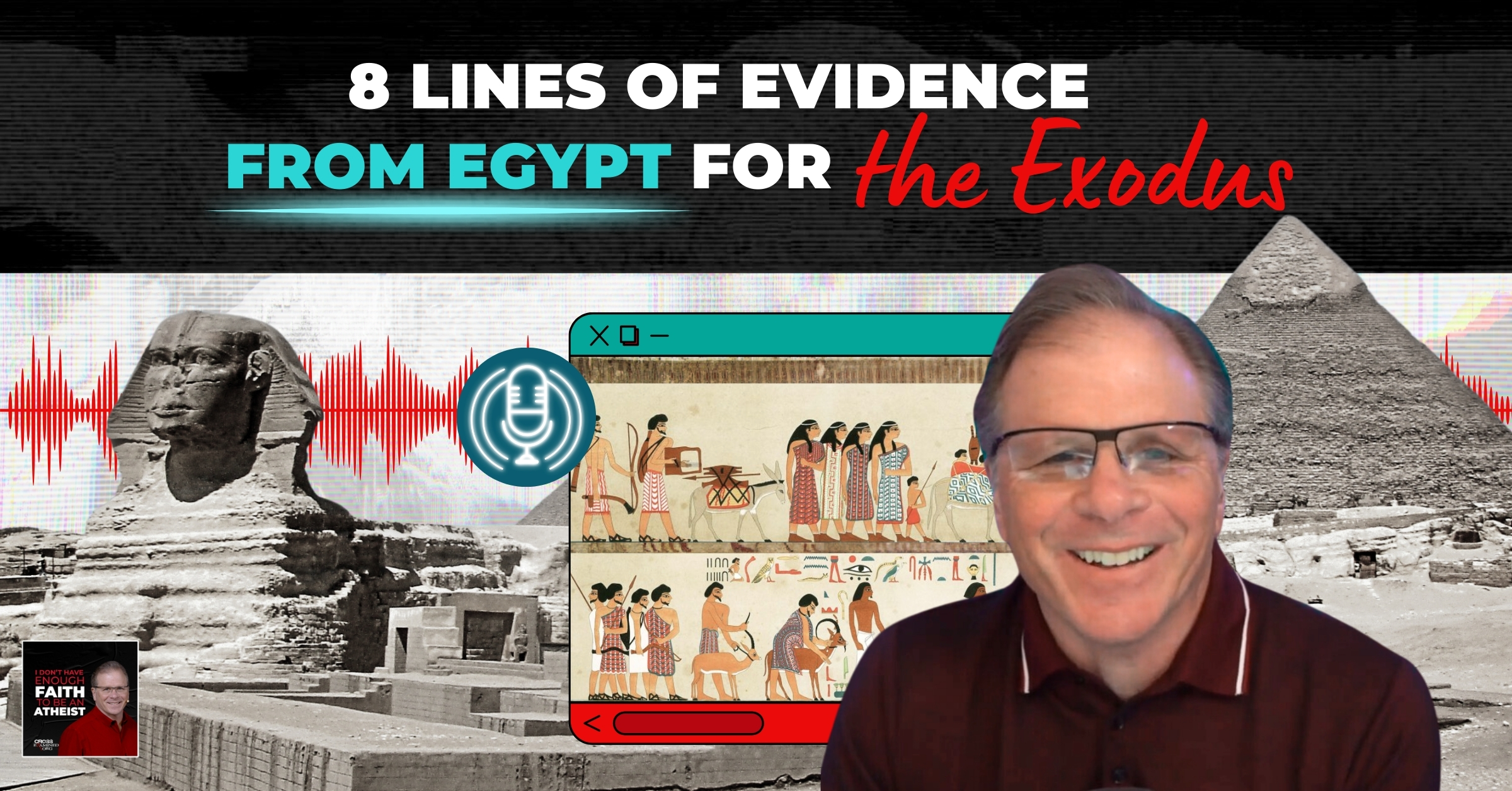Dangerous Homefront, part 3: Correcting Prooftexts
In part 1 of this series we looked at prooftexts from the Old Testament. In part 2 we looked at prooftexts from the New Testament. At this point you may be wondering, “So what’s the big deal?” People will misinterpret things, so what?
What’s the Big Deal?
Clearly, misinterpretation occurs often within the Church. Does that mean that the church is apostate or heretical? Not really, but it does mean that we make mistakes. Many of these mistakes go unnoticed and never cause any real damage. But other mistaken interpretations can sink in, take root, and spring up as dangerous beliefs and bad practices. Consider how many people have watched a loved one pass away, even though they prayed in groups for God to heal them, and, this unmet expectation shattered their faith (see Matt. 18:19-20 in Part 2). Or consider how many people think that the Bible instructs them to fear Satan, and as a result, they have developed a paranoid superstition over Satan’s abilities despite the fact and assurance of God’s sovereignty (see Matt. 10:28). And even well intended misinterpretation such as the evangelistic use of Revelation 3:20, can cause trouble. If people are won to Christ through misinterpretation what precedent does that set for their continued growth in prayer and Bible Study? Can men willfully disrespect God’s Word and still respect God?
Sound interpretation is important. What good is an inerrant Word if we disregard the available correctives to keep our interpretation on target? And even though God can guide and preserve orthodoxy, we should not be so presumptuous as to assume that the Holy Spirit will always make up for our interpretational mistakes, especially when we should already know better than to make those mistakes. God has provided man with an inspired inerrant Word, and He has provided enough resources (natural and spiritual) to access and apply it. We are in no place to deal half-heartedly with such a precious revelation as God’s Word. If we dare to willfully or negligently misinterpret God’s word, we’re flirting with bad theology. And to indulge in bad theology is to flirt with idolatry.
Basics of Interpretation
What are some of these correctives to help us interpret Scripture? Below are a few keys principles to keep in mind as you study God’s Word.
- Context, Context, Context
Respect historical, cultural, circumstantial, and textual context (that is, the larger passage). These help keep your interpretation oriented and anchored. - The Bible can never mean what it never originally meant.
As a general rule of thumb, we shouldn’t try to find meaning in the text that the original author would have never intended. Any given passage will have only one meaning. That is the normal mode of communication. This meaning may have endless applications, there can many implications and layers to that meaning, like double entendres and word plays, or multiple sub-points, metaphors, but the entire meaning that it once had is the one meaning it always has. Without this boundary line there is little defense against the various interpretations offered by cult groups, critics, and heretics. - When we share common particulars with the audience being addressed God’s word to them is the same as it is to us.
This rule deals with how to apply the text. Where our particulars differ from that of the original audience, then we cannot directly apply that element of that passage of Scripture. But when those particulars are the same between us and the original audience (to whom the text is addressed) then we can draw the same general application as them. Jesus told believers back then to “love your neighbor as yourself,” and since we too believe in Jesus and fit in that general audience, we too should “love our neighbor as ourselves” (Mark 12:31). - Scripture interprets Scripture.
The Bible is a big book and for most topics there are at least a handful of passages that will apply in some manner. Consider the overall Biblical message by comparing verses and passages within Scripture. And where new or unfamiliar passages arise, let the already understood passages serve in the sound interpretation of the rest of Scripture. - Let the clear passages predominate.
Some passages will stand out as clear and accessible. Let these passages provide guidance in the interpretation of related, but more difficult passages. - If the plain sense makes sense, seek no other sense, lest you end up with nonsense.
Much of Scripture is readily understandable to the honest reader. Let Scripture speak out clearly as much as possible and seek no other sense unless the Scriptures themselves defy such a ready interpretation.
Conclusion
If you have found yourself setting off the Christian metal detectors by innocently retaining potentially harmful misinterpretations, then hopefully these principles will help you in future study. But you will probably find out soon (if you have not already) that even the best interpreters can benefit from some outside resources. For a good introduction to interpretation see How to Read the Bible for All Its Worth by Gordon Fee and Douglas Stewart.[1] For some free Bible study software see the free version of Logos, or other free bible programs at www.e-sword.org and YouVersion/Bible.com. You may also want to invest in some more specialized resources as well like paid-versions of Accordance or Logos.[2] These materials range from free, to costing an arm and a leg. But, whatever the cost, they may yet prove to be of eternal value.
In closing, it must be said that though interpretation can be very difficult, most of its difficulty is simply our impatience and pride. But we can still solve most of our mistakes in interpretation by patiently and humbly searching out the meaning of a text as we suspend our immediate impressions and test our possible understandings. True, many passages will remain debatable and even mysterious. But on the whole Scripture is clear enough for us to believe, practice, and communicate the true Biblical Christian faith. As guardians of the faith, we should be like the security personnel at Laguardia airport taking our job seriously. Keep the big picture in mind, including all the various dangers, so that you take seriously your job as a guardian of the faith. God’s Word is weighty and powerful. Handled poorly it can be a disaster, but handled wisely it is the very power of God to change the world.
Endnotes
[1] 2nd ed. (Grand Rapids: Zondervan, 1993). A good introduction to literary hermeneutics is Leland Ryken, How to Read the Bible as Literature . . . and Get More Out of It (Grand Rapids: Zondervan, 1984). Also good is, Grant R. Osborne’s The Hermeneutical Spiral: A Comprehensive Introduction to Biblical Interpretation (Downer’s Grove, IL: Intervarsity, 1991). This edition would probably have benefited from collaboration with specialists in philosophy and related fields, but overall this text is strong. Unfortunately many evangelical texts disqualify themselves from safe recommendation because they deny objective Biblical interpretation. For more on this issue see Kevin J. Vanhoozer, Is there a Meaning in This Text? (Grand Rapids: Zondervan, 1998), 1-195 and Thomas A. Howe, Toward a Thomistic Theory of Meaning [Master’s Thesis] (Charlotte, NC: Independently Published, 2000).
[2] The standard Greek Lexicon is Bauer, Arndt, Gingrich, Danker, Greek-English Lexicon of the New Testament and Other Early Christian Literature (2000). The standard Hebrew lexicon is the Koehler and Baumgartner, Hebrew and Aramaic Lexicon of the Old Testament [HALOT] (2002), followed by slighter older and less comprehensive Brown, Driver, and Briggs, Hebrew and English Lexicon (1992). the standard English-language concordance is James Strong, ed. The New Exhaustive Concordance (1985). Some other helpful sources for commentary on difficult or misrepresented Scriptures include Norman Geisler and Thomas Howe, When Critics Ask: A Popular Handbook on Bible Difficulties (Grand Rapids: Baker, 1992); and Walter C. Kaiser and others, Hard Sayings of the Bible (Downers Grove, IL: Intervarsity, 1996).
Recommended resources related to the topic:
Counter Culture Christian: Is the Bible True? by Frank Turek (Mp3), (Mp4), and (DVD)
The New Testament: Too Embarrassing to Be False by Frank Turek (DVD, Mp3, and Mp4)
Why We Know the New Testament Writers Told the Truth by Frank Turek (DVD, Mp3 and Mp4)
Oh, Why Didn’t I Say That? Is the Bible Historically Reliable? by Dr. Frank Turek DVD, Mp4, Mp3 Download.
How to Interpret Your Bible by Dr. Frank Turek DVD Complete Series, INSTRUCTOR Study Guide, and STUDENT Study Guide
How Philosophy Can Help Your Theology by Richard Howe (MP3 Set), (mp4 Download Set), and (DVD Set)
__________________________________________________________________________________________________________________________
John is a licensed minister with earned degrees from Charleston Southern (BA), Southern Evangelical Seminary (MDiv), and Southwestern Baptist Theological Seminary (ThM, PhD). His doctorate is in philosophy of religion, minoring in ethics. As a new addition to Crossexamined in 2023, John brings a wealth of experience to the team including debating atheists, preaching the Gospel, teaching apologetics in schools and churches, publishing books and articles, and creating websites. John is also a teaching fellow with Equal Rights Institute and president of Pella Pro-Life in his hometown of Pella, Iowa. There he resides with his lovely and brilliant wife Hillary Ferrer, founder of Mama Bear Apologetics. Together they specialize in cultural apologetics with an emphasis on family-based apologetic training.
Originally posted at: https://bit.ly/3r0C5qp











